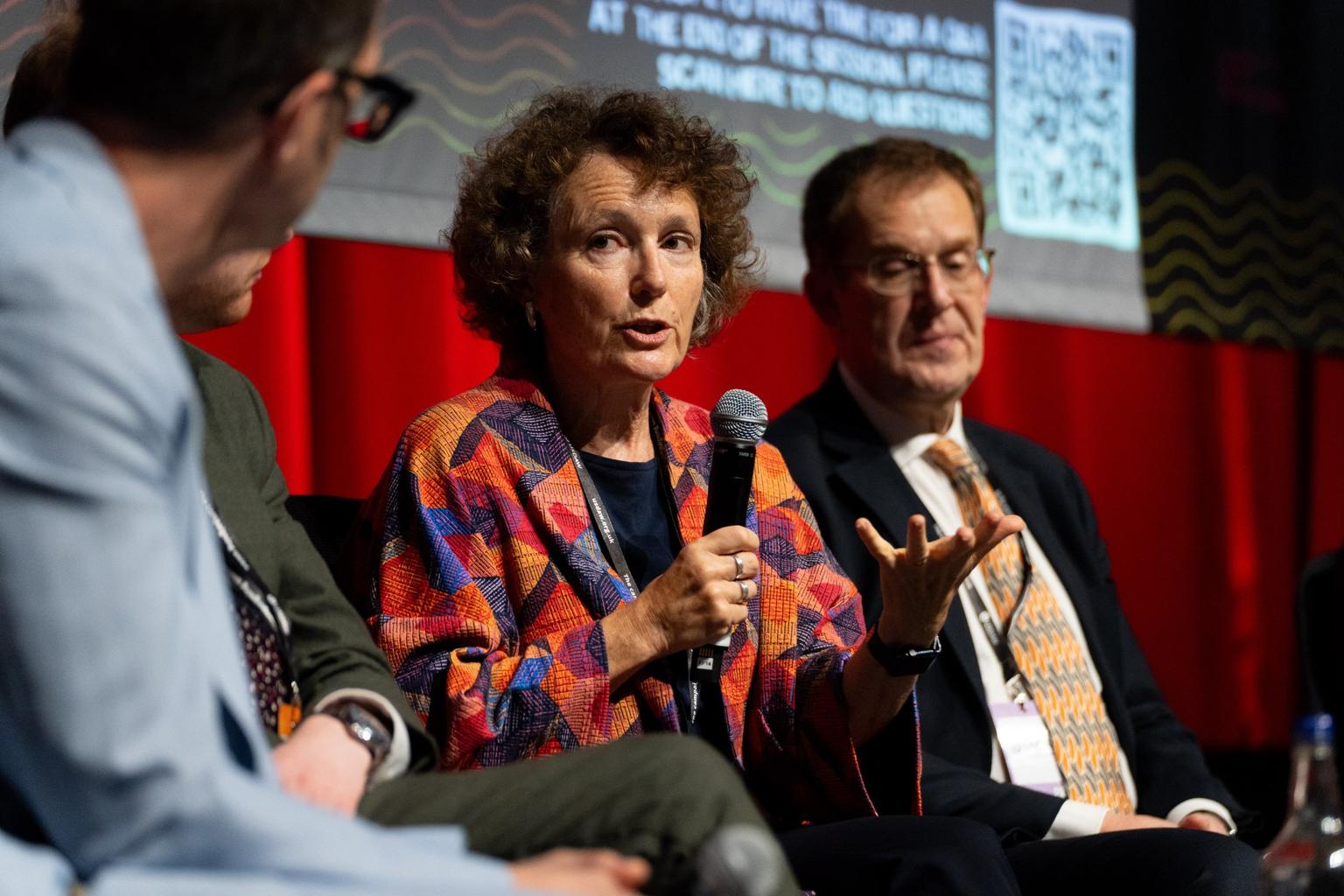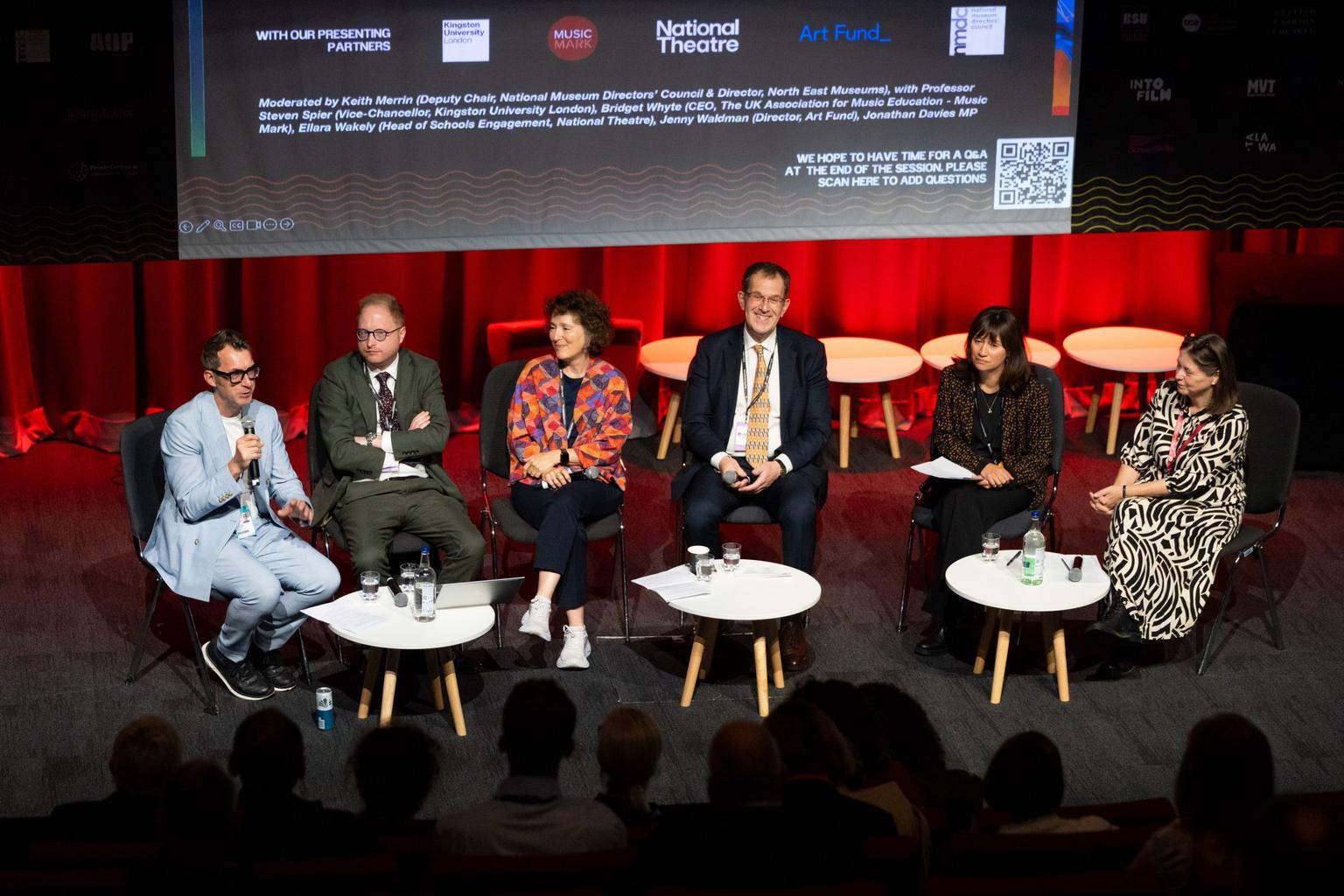Art Fund calls for creative learning and school visits to be embedded into the curriculum

Here’s how we’ve been highlighting the vital work of the museum sector to policymakers at the Labour Party Conference in Liverpool.
Art Fund has welcomed a growing sentiment from senior government figures about the importance of cultural education, from Keir Starmer’s 2024 conference speech stating “early encounters with art and culture change us forever” to Bridget Phillipson’s 2025 speech saying the government sees education “as about the people of tomorrow… the artists… and the museum-goers.”
The period between party conferences has seen the emergence of several significant policies that have the potential to transform young people’s lives through cultural education. These include the Curriculum and Assessment Review, the Enrichment Framework, the National Centre for Arts and Music Education and, most recently, the ‘Every Child Can' programme as announced by Lisa Nandy at the Labour Party Conference last week.
However, many of the conversations in Liverpool this year also raised concerns that the ambitions for cultural education are not being fully embedded into policy and programme development.
To understand and unpick this further, our director, Jenny Waldman, spoke on Creative UK’s panel ‘Creative Learners, Future Leaders: A Curriculum for Growth’ alongside Jonathan Davies MP, the National Museum Directors’ Council, Kingston University, Music Mark and the National Theatre.
We spoke about our advocacy priorities
The panel identified some key advocacy priorities to promote cultural education. These include:
Reforming accountability measures to integrate arts subjects into the English Baccalaureate (EBacc) and Progress 8.
Promoting a minimum weekly entitlement of arts provision within the national curriculum and the school day, so arts are not outsourced as solely an enrichment option.
Ensuring every schoolchild experiences a visit to a museum or gallery every year within the national curriculum.
Integrating skills in the Curriculum and Assessment Review so that knowledge and skills are recognised as two sides of the same coin.
Investing in high-quality training and CPD for arts teachers, alongside curriculum resources that support a diverse curriculum.
Aligning policy between the Department for Culture, Media and Sport and the Department for Education to better support cultural learning and skills.

We highlighted the importance of cultural access for early years children
To underpin these advocacy priorities, Art Fund also highlighted the critical importance of access to culture and creativity in children’s early years. Research shows that early childhood experiences shape our brains and bodies, yet not every child gets what they need to develop during their earliest years.
At Nesta’s panel, 'Helping children thrive: How do we drive a national focus on parenting', CEO Ravi Gurumurthy spoke about Mini Wonders, Art Fund and Nesta’s joint early years innovation in museums programme. Based on pioneering research from clinical psychologist Dr Crispin Day, the programme is designed to support parents and caregivers to strengthen their interactions with children and support them to be ready for school. We spoke with Olivia Bailey MP, Minister for Early Education, about scaling this programme to better utilise UK museums’ existing buildings, collections and expert learning teams to enable more young children to reach their full potential.
Here's the opportunity gap. Art Fund did some research last summer and we found that 52% of kids in schools in socioeconomically disadvantaged communities go to museums. If you look at economically advantaged postcodes, it’s 70%. Embedding school visits in the curriculum is key.
We championed civic museums
We know that civic museums are a vital part of the UK’s cultural education infrastructure, with many children’s first cultural experiences taking place in their local museum.
At More in Common’s panel, 'Can Labour deliver on reviving local places through heritage?', executive director Luke Tryl referenced a public opinion poll commissioned by Art Fund, which found that four in five people across the UK want their local authorities to support local museums. In the panel with Baroness Twycross, Minister for Museums, we discussed the importance of investing in cultural infrastructure to both regenerate local areas and provide the inspiring environment needed to deliver lifelong learning and skills development.
Our call for collaboration across the sector and government
Art Fund advocates across a range of policy areas to make the case to government that museums are good for us, inspire storytelling for future generations, and promote giving.
Labour Party Conference highlighted that there is already strong alignment across the cultural sector on ways to tackle the key challenges facing museums and cultural organisations today. For example, there have been collaborative efforts to address the Curriculum and Assessment Review with Professor Becky Francis, Bridget Phillipson MP, Georgia Gould MP and Helen Hayes MP through consultations, letter campaigns and meetings.
As we look ahead there is a clear opportunity for the sector to continue to come together, coordinate our messaging, and present a united case to government to put arts subjects and visits to museums and galleries back at the centre of school life.